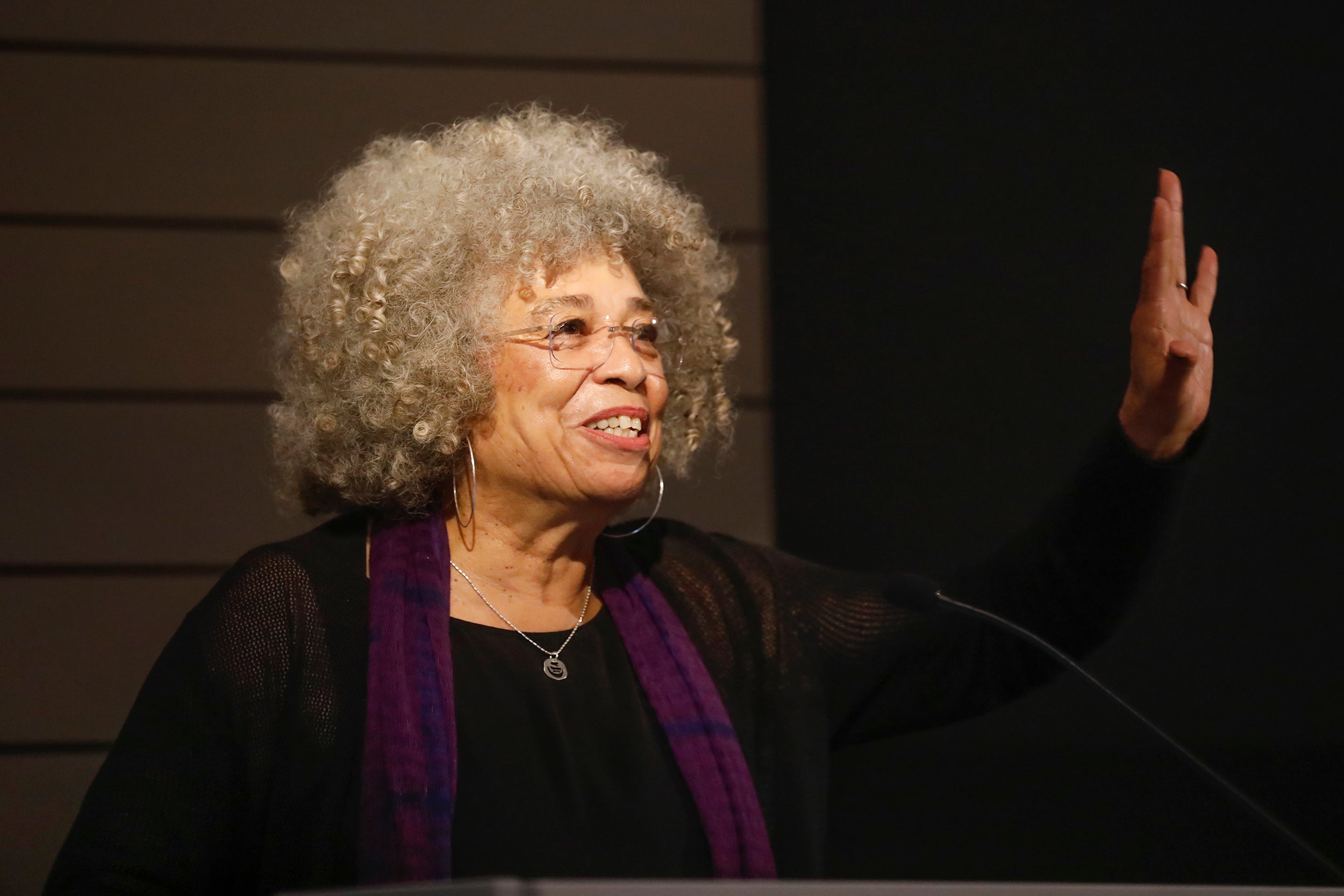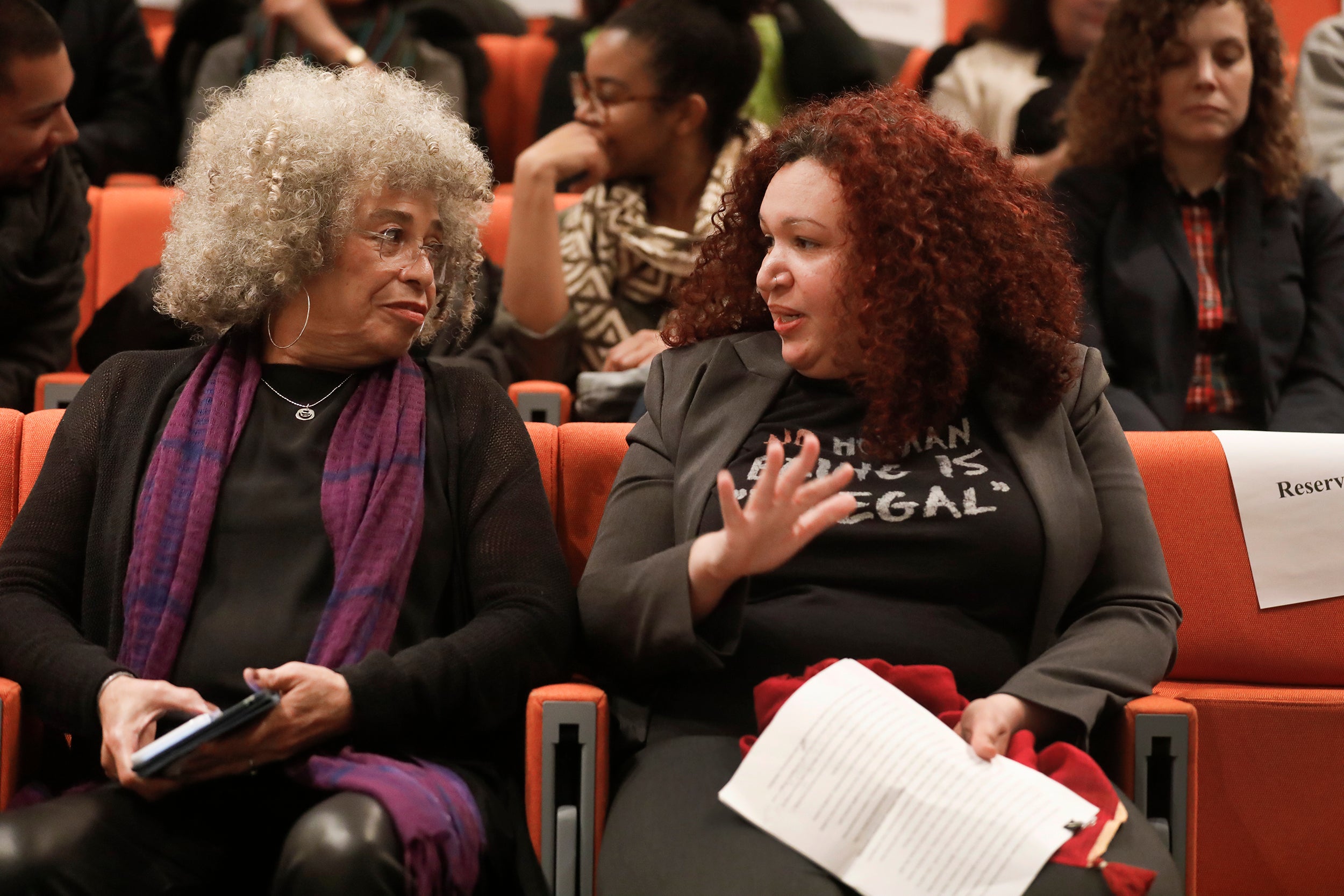
Famed activist and academic Angela Davis declared immigration the civil rights issue of the 21st century at an event co-sponsored by the DACA seminar.
Jon Chase/Harvard Staff Photographer
People everywhere are on the move
Harvard hears from activist Angela Davis on immigration at screening co-sponsored by DACA seminar
More like this
Famed political activist and scholar Angela Davis took the stage at the Harvard Art Museums’ Menschel Hall on Thursday to share her views about immigrants’ rights. And she didn’t hold back.
“I believe that the major civil rights issue of the 21st century is the issue of immigrant rights,” said Davis, distinguished professor emerita at the University of California, Santa Cruz. “Not only in Europe or the United States, but everywhere — from South America to Africa and Australia.”
But the struggle for immigrants’ rights has to be seen in a larger context of global migration, added Davis, a phenomenon that is bound to continue as vast groups of people flee war and destitution at home for better opportunities elsewhere.
“We tend to see the struggles, but we often fail to see the larger context in which migration takes place, and the persistence of colonial frameworks during this post-colonial era,” said Davis, whose papers were recently acquired by the Schlesinger Library. “It’s important to recognize this as we engage in acts of opposition and activism.”
Davis was guest speaker at a screening of “Asmarina,” an event co-sponsored by the DACA Seminar. The seminar has organized events highlighting immigrant issues such as the future of Deferred Action for Childhood Arrivals (DACA), an Obama-era executive action that shields young immigrants from deportation. President Trump has vowed to terminate the program, and this past weekend intensified his attacks, calling it “dead.”
The film documents the struggles and joys of the Eritrean and Ethiopian communities in Italy. It was directed by Medhin Paolos, who was born in Milan to Eritrean parents and is now a research scholar in the Department of Romance Languages and Literatures.

Davis speaks with Lorgia Garcia Pena, Roy G. Clouse Associate Professor of Romance Languages and Literatures and of History and Literature, before introducing “Asmarina.”
Jon Chase/Harvard Staff Photographer
“I wanted to fill in the blanks in the history we learn in schools, but I also want to bring the stories of the Eritrean and Ethiopian communities to life,” said Paolos, in a conversation with Davis after the screening. “Their stories are part of Italy’s history.”
It’s a story familiar to immigrants in the U.S. and all over the world, said Lorgia García Peña, Roy G. Clouse Associate Professor of Romance Languages and Literatures and of History and Literature.
Davis said the movie might help people connect the U.S. immigration debate to what’s happening in other parts of the world.
“We have come to a historical moment when human aspirations exceed the possibilities of the nation-state,” said Davis. “We see this in the closing of the U.S. border, and the criminalization and demonization of immigrants, and in the insistence of defining citizenship not in a way that emphasizes their relationship to community and to democracy, but rather only as a function of papers and documents.”
Other sponsors of the screening were the Department of Romance Languages and Literatures, the Harvard Art Museums, the Inequality Initiative (Social Science Dean’s Office), the Charles Warren Center for Studies in American History, the Hutchins Center for African and African American Research, and the Schlesinger Library.





